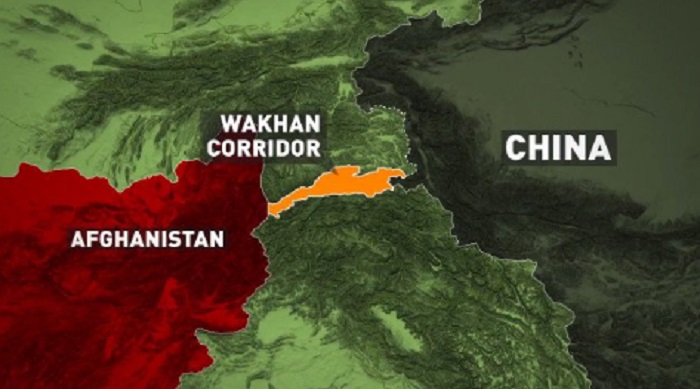
The recent offer by China-based Gochin Company to invest USD 10 billion in Afghanistan’s lithium mining sector, estimated to be worth more than USD 1 trillion, is apparently a broad Chinese strategy to control country’s mineral resources, particularly, its lithium deposits which are critical global mineral supply chains. According to the Afghanistan Ministry of Mines and Petroleum, the Chinese company has also offered to invest in several other Afghan infrastructure projects, including tunnels, hydro-electric dam and highways if it is awarded the lithium mining contract.
After the Taliban takeover of Kabul, Beijing has been looking to increase its economic footprint in Afghanistan and control its natural resources. Chinese corporations and officials have been in contact with Taliban officials to renegotiate and restart previous mining and oil contracts. Earlier, on January 6, the Taliban signed a deal with Xinjiang Central Asia Petroleum and Gas Company (CAPEIC), a contract to extract oil from the Amu Darya basin. The deal will see an investment of USD 150 million in the first year and USD 540 million over the next three years. Greater presence in Afghanistan provides China with an opportunity to strengthen its regional power and influence.
According to Sayed Mehdi Munadi, an international affairs analyst based in France and a former Afghan diplomat who was stationed in Beijing, China is also extracting Afghanistan’s natural resources through illegal workarounds, bribery and smuggling. His statement has been strengthened by recent reports of Taliban authorities arresting 5 men, including two Chinese nationals, for allegedly trying to smuggle an estimated 1,000 tonnes of lithium-bearing rocks out of the country via Pakistan. According to Mohammad Rasool Aqab, a senior official at the Afghan Ministry of Mines and Petroleum, the rocks, which contained up to 30% of lithium, were secretly extracted from Nuristan and Kunar, two of the several Afghan provinces along the bordering Pakistan.
With more than half of the world’s electric vehicles sold in the country, China’s appetite for lithium and cobalt is skyrocketing. Chinese companies manage nearly two-thirds of the global lithium processing and refining, which is a potential supply chain risk for other countries. With significant share of mineral processing capacity, China is stepping up downstream investments to maintain its control over lithium and other minerals. In the last five years, Chinese companies have made significant investments in lithium mining in Latin America including Argentina, Bolivia, Mexico and Chile.
Besides, Chinese companies are also turning into Africa, including Zimbabwe, Namibia and Congo, for mineral assets. Africa produces about two-thirds of the world’s cobalt and 10% of its copper, while the exploration of lithium resources
is in the early stage. Despite risks like political instability, inadequate laws & regulations, corruption, poor infrastructure and problems associated with early stage exploration, Chinese investors are keen to invest in the continent’s mineral resources to take a head start over the Western countries.
Concern over access to critical minerals is at an all-time high after Russia’s invasion of Ukraine and escalating tensions between the West and China. China is attempting to build a dominant position in minerals like cobalt, lithium and rare earth metals that are crucial for the new age energy transition. Analysts point out that Chinese companies invested in lithium supply in Africa and Latin America even when lithium prices were low as their long-term strategy to secure supply of rare earth elements. China is not only investing in mines overseas but also investing in building domestic refineries to process their output.
According to David Deckelbaum, MD for Sustainability & Energy Transition at New York based Cowen Inc., China has spent somewhere between USD 60 – 100 billion over the last decade to build its lithium industry by subsidising the production of cheap EVs and helping companies invest in lithium mining and refining infrastructure.
The Chinese move, a long-term strategy to spread its geo-economic interests and garner market dominance, poses a strategic and security challenge for other countries looking to transit to green energy. In 2019, for example, China had used rare earths as a threat during its trade war with the US, when it threatened to cut off supplies to the US.
Even though China does not have anywhere close to the world’s largest lithium reserves, the country is dominating the global lithium battery supply chain. The International Energy Agency puts China’s share of global refining capacity at 58%. UBS AG expects Chinese-controlled mines to raise output of lithium to 705,000 tonnes by 2025 from 194,000 tonnes in 2022. That would lift China’s share of the mineral critical to electric-vehicle batteries to 32% of global supply, from 24% in 2021. It could increase supply chain risks for other countries, which now need to decrease their dependence on Chinese lithium supply and establish a secure, independent supply of lithium before it is too late. There is a very real threat that China would control the lithium market as OPEC did with petroleum. (Khaama Press)


